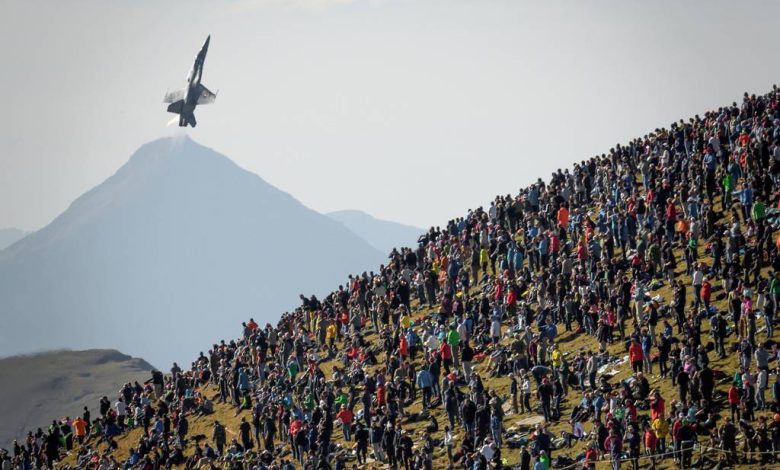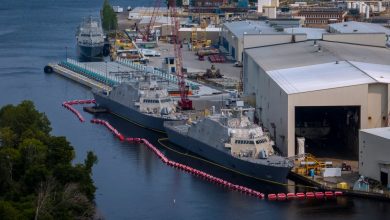Switzerland squares neutrality with its European air-defense push

MILAN — Switzerland is moving to formalize its membership in the European Sky Shield Initiative, a step that officials and analysts believe is in line with the country’s neutrality stance thanks to the project’s procurement focus and some special wording.
Through its participation in ESSI, launched in 2022 following Russia’s full-scale invasion of Ukraine, Switzerland aspires to increase “international opportunities for cooperation” and enable coordination of purchases, training, and logistics for its ground-based, air-defense portfolio, the government said in a statement.
Neutral states Austria and Switzerland signed a letter of intent to join the initiative in July 2023, which initially raised questions about the feasibility of the match with their policy of neutrality.
Marcel Berni, lecturer at the Strategic Studies Department at the public research university ETH Zurich, said Switzerland’s tradition of non-alignment presents no conflict in this case. “In view of neutrality, joining the initiative is in my opinion unproblematic – participation is also in Switzerland’s security interests,” he said.
Berni also noted that since Switzerland does not currently “have the means to defend itself in the event of an air attack with ballistic missiles,” the country’s eventual accession is also coherent from a military standpoint, he argued.
According to the Swiss Federal Department of Defense, even after becoming a member, Bern would retain the right to decide its level of involvement in ESSI.
“Switzerland itself decides on the extent and nature of its participation in ESSI activities – its main focus is on the coordination of procurement projects and cooperation in training and logistical aspects. Integration into a ground-based air defense network is not envisaged,” Samantha Leiser, a spokeswoman at military-procurement agency Armasuisse, told Defense News in an email statement.
One of the ambitions of the initiative is to build a ground-based integrated European air defense system with a capability to counter ballistic missiles. The European architecture feeds into NATO’s wider Integrated Air Defense System, which consists of nationally-owned, networked sensors and interceptors.
Leiser added that the ESSI framework agreement contains a suspension clause that “excludes participation or involvement in armed conflicts between states.”
The ESSI project has grown from 15 to 21 participating states, with Greece and Turkey announcing their intention to join in February. The nations now have two months to decide on Switzerland’s membership bid.
Elisabeth Gosselin-Malo is a Europe correspondent for Defense News. She covers a wide range of topics related to military procurement and international security, and specializes in reporting on the aviation sector. She is based in Milan, Italy.







